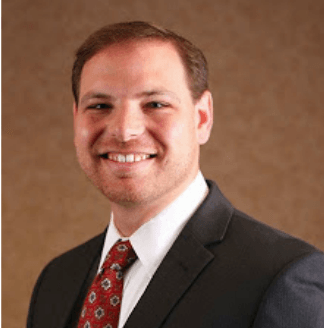Nasal Polyp Treatment in Louisville from a Fellowship-Trained Nasal Surgeon
Get expert treatment from an internationally recognized doctor on nasal polyps.
What Are Nasal Polyps and When to See a Sinus Doctor
Nasal polyps are
water-bag-like growths that occasionally develop in the nasal and sinus passages. They are the result of inflammation and are typically not dangerous or cancer-forming masses. They do not usually cause pain unless an underlying infection is present. Allergies, prior bacterial infections, or even sensitivity to aspirin may all play a role in their development. They can be a reason why some people have ongoing or recurrent sinus problems.
Nasal polyps can be many different sizes and will often not cause symptoms until they grow large enough to interfere with the nasal breathing pattern. Polyps may grow in clusters. Those resistant to medical therapy may require removal with surgery.
Nasal Polyp Symptoms Explained by a Sinus Doctor
Symptoms of nasal polyps can include a nasal congestion, loss of taste and smell, excessive snoring, runny nose, headaches, and postnasal drip. In people with severe nasal polyps, there may be complications around the eyes, such as swelling around the eyes or double vision. Extensive nasal polyps are often associated with severe sinusitis; however, not everyone who suffers with sinusitis will develop polyps. Sometimes, nasal polyps cause minimal symptoms because they are so small.
What other nasal masses look like nasal polyps?
Nasal polyps are not the only lumps that can be found in the nose and sinuses. Some lesions can masquerade as nasal polyps.
Mucocele
A mucocele is a walled-off sinus cell filled with thick mucus. These lesions can cause severe complications and should be evaluated.
Antrochoanal Polyp
An antrochoanal polyp is a single polyp arising from the maxillary sinus from a twisted “stalk” of mucosa.
Mucus Retention Cyst
Mucus retention cysts are benign fluid-filled cysts, often in the maxillary sinus, that tends to not grow. Hence, a mucous retention cyst maxillary sinus treatment may be recommended.
Sinus Tumors
Several types of tumors, both benign and cancerous, can arise from the paranasal sinuses. It is, therefore, important for all polyps to evaluated thoroughly. Occasionally, tumors can even arise from within the polyposis. Sinonasal tumors may include inverted papilloma, adenocarcinoma, esthesioneuroblastoma, SNUC (Sinonasal Undifferentiated Carcinoma), melanoma, and squamous cell carcinoma.
Common Causes of Nasal Polyps and Chronic Sinusitis
Some medical conditions can be associated with the development of nasal polyposis.
Cystic Fibrosis
Cystic fibrosis is a genetic disorder of the mucus-producing glands that affects the liver, lungs, kidneys as well as the intestines. Sinus problems commonly develop because mucus cannot drainage appropriately. Severe nasal polyps is common as well as recurrent resistant sinus infections in the nasal cavity. There is no cure for cystic fibrosis and requires lifelong treatment.
Aspirin Exacerbated Respiratory Disease (AERD)
AERD is a condition characterized by nasal polyps, asthma, and aspirin sensitivity/intolerance. Nasal polyposis is extensive and is known for being resistant. Avoidance of aspirin is highly recommended in these patient unless desensitization has been performed.
Allergic Fungal Rhinosinusitis (AFRS)
Allergic fungal rhinosinusitis includes chronic sinusitis with nasal polyps, thick allergic mucin, and fungal colonization within the sinus cavities. It typically presents as one-sided severe polyposis. Interestingly, antifungal medications tend to not help with this condition. The best treatment is typically sinus surgery with removal of all fungal elements and corticosteroid therapy. This treatment can be curative if all the fungal debris is removed.
Asthma
Asthma is often present in patients with nasal polyps. Known as the unified airway, inflammation can occur from the nose all the way down to the lungs.
Allergies (Hay Fever)
Hay fever is a type of allergic reaction that comes from pollen released pollen into the air, which is then inhaled and causes inflammation in the nose, eyes, throat, and lungs.
How a Nasal Surgeon Diagnoses Nasal Polyps
Nasal polyps are diagnosed by looking into the nose with a small camera called a nasal endoscope, but further work-up may be necessary.
Laboratory Tests
Laboratory tests, such as levels of eosinophils or IgE, can be helpful in characterizing the condition. Allergy testing may help determine if concomitant allergies are present.
Nasal polyps are often a sign of more extensive inflammation deeper in the sinus, termed chronic rhinosinusitis. Symptoms, such as trouble breathing, facial pressure, and smell loss can occur.
Diagnostic Nasal Endoscopy
A diagnostic nasal endoscopy is a minor office procedure that can be performed to see the extent and size of the polyps, determine if infection is present, and evaluate the nose and sinus anatomy for issues, such as a deviated nasal septum or inferior turbinate hypertrophy.
CT Scan of the Sinuses
A CT scan of the sinuses, a quick imaging study, may also be necessary to determine the amount of surrounding sinusitis is present and evaluate the paranasal sinus anatomy.
Treatment Options for Nasal Polyps and Chronic Sinusitis
The treatment of nasal polyps may include medications or surgery. Many treatments are available, including antibiotics for associated infections, oral corticosteroids to temporarily control inflammation, nasal sprays for chronic rhinitis (such as Flonase, Nasacort, and Nasonex), and other allergy medications. Allergy immunotherapy (whether it is SCIT-subcutaneous immunotherapy or SLIT - sublingual immunotherapy) may be beneficial for nasal polyps or symptoms related to seasonal or perennial allergies.
Nasal Polypectomy for Nasal Polyps
Nasal polypectomy along with
sinus surgery is a highly successful treatment option that can provide profound symptom relief immediately after surgery. Surgery helps to reduce symptoms, improve quality of life, and assist in maximizing the effectiveness of the medications.
Maintenance medications are important to keeping inflammation under control, with or without, and before and after, sinus surgery.
Sinus Rinses and XHance for Nasal Polyps Treatment
Topical treatment options include steroid sinus rinses (most commonly budesonide sinus rinses) and XHance, an exhalation delivery device that can spray steroid up around the areas where nasal polyps arise.
Aspirin Desensitization
Aspirin desensitization can be considered for those with aspirin-exacerbated respiratory disease (AERD). This procedure consists of slow increasing aspirin dosage until the body does not respond to it anymore.
Monoclonal Antibodies to Treat Nasal Polyps | Dupixent, Xolair, Nucala
Monoclonal antibodies (or "biologics") are also an important add-on treatment option for patients with intense type 2 inflammation and chronic rhinosinusitis with nasal polyps. The current biologics available for nasal polyps include Dupixent, Xolair, and Nucala. These drugs target specific areas of inflammatory cycle responsible for the formation of nasal polyps. They are given as subcutaneous injections in the office or self-administered at home.
Looking for expert nasal polyp care in Louisville? See why patients trust our board-certified sinus doctor and nasal surgeon.
Need Help with Nasal Polyps?
Frequently Asked Questions





